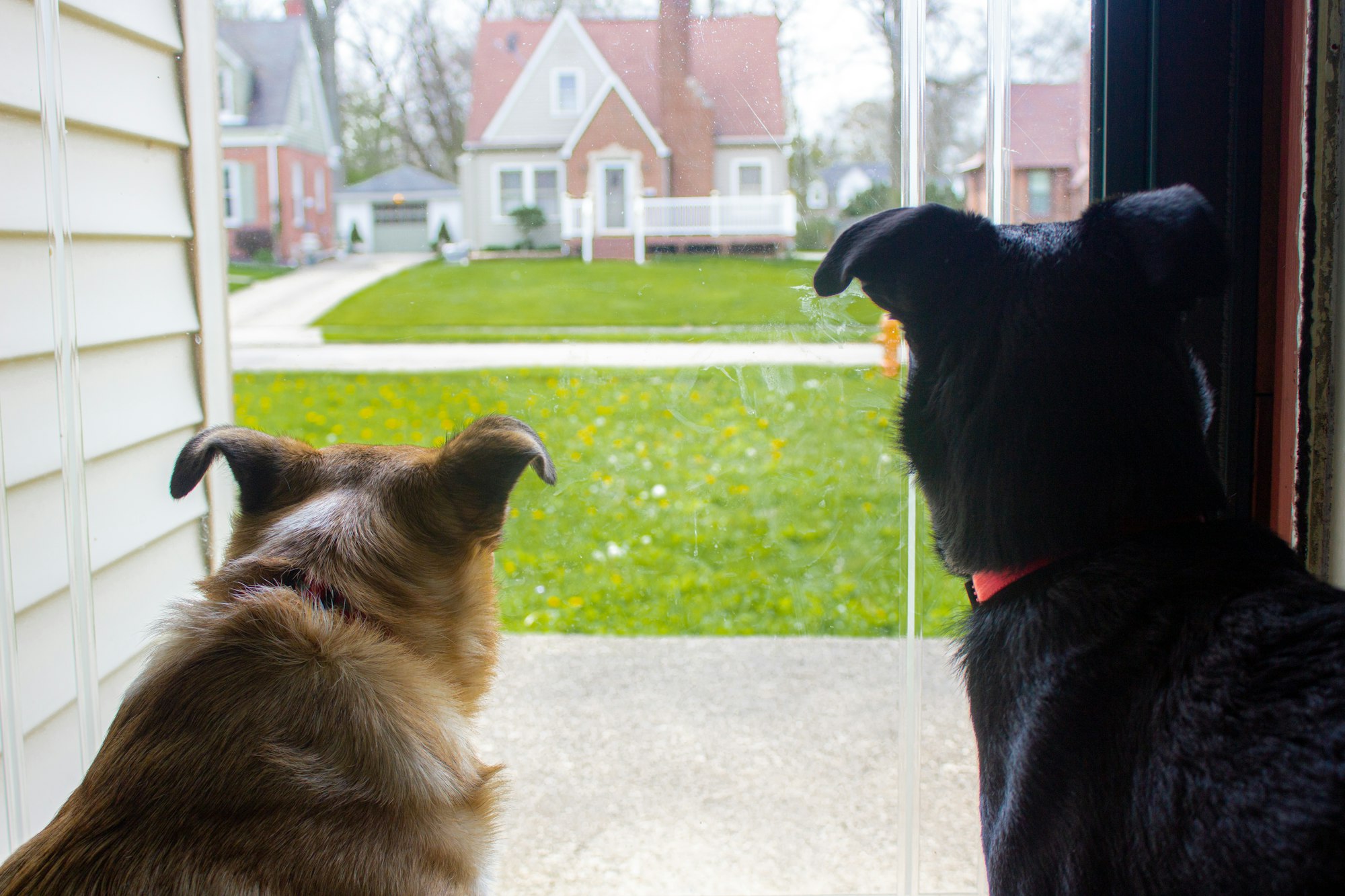If you own a dog that won't stop barking, you might have asked yourself, does it get tiring for dogs to bark so much? While barking does serve as a means of communicating, it may also be needless, worrying, and disruptive when overdone. Dogs can and will almost bark for as long as needed. They can expend it all, both in energy or mentally but this does not mean that they will simply head off and cease barking and leave it at that.
In this article, why dogs bark, does it get tiresome, and how to deal with excessive dog barking problem will be discussed. Some of these problems involve learning more about the dog’s habits and implementing some ways to limit unnecessary dog barking to make life better for both the dog and the owner.

Why Do Dogs Bark?
As dog owners, you’d know that a dog barks whenever he/she wants to inform a person, show enthusiasm or is sometimes even in distress. If you understand the cause of the barking then it becomes easier to solve the problem of barking. Some of the main causes of barking in dogs are presented below:
Alert or Territorial Barking
Most dogs also tend to bark in order to warn above threats and changes that occur in their settings and as Apache says in both breasts. Some breeds follow this instinct to bark when they observe some activity whether it is a stranger near the front of the house or another pet coming in. Such barking behavior most times comes naturally and is triggered by guarding instincts.
Attention-Seeking Barking
The most famous type of canine communication is called Bark and a dog may decide to engage in this one just to capture your attention. They can’t wait until you play with them or give them something to eat or let them out. So the bark is very simple for them, “Look here, you have someone important here!” This response is also positive reinforcement for attention-seeking barking especially when an owner comes out barking.
Excitement or Playful
Barking Most people have had the experience when some pets bark mostly to be heard above and excitement or happiness dominates the dogs, especially in play. This type of barking is mostly high-pitched along with flailing of the tail and other signs of barking excitement. Although this is normal, it can still be controlled in case it does not get out of hand.
Insufficient Stimulation
Mind and body, they need them. too little of them leads to boredom/frustration and too much to disturbances like barking. For instance, a dog may bark out of frustration in cases where they have been confined inside a place for many hours or they have been exercised or interacted with poorly.
Separation Anxiety
It is perhaps the worst and most common reason to cause excessive barking in dogs is called separation anxiety. Dogs with a separation anxiety disorder will always bark or whimper when left alone as they are anxious when their owners are absent. This type of barking tends to occur shortly after the owner leaves and in some cases may last for a few hours.
Stress or Fear
Apart from that dogs also bark when they are stressed tired or scared. For example, loud noises like thunderstorm rain or fireworks, or new places may cause dogs to fear and they will bark. In situations like these dogs bark as a part of communication as they feel discomfort and sometimes dread.

Do Dogs Actually Get Tired of Barking?
The answer is yes—dogs can become tired of barking. However, many factors come into play including the reasons why barking is done, the present energy levels and health status of the dog.
Physical Fatigue
It may be noted that barking is an activity that involves the movement of muscles. It, like any other activity, will use up energy. Thus barking for an extended period will also tire the dog physically. Since it does use the vocal cords and chest muscles due to the barking, abdominal muscles are exerted too which causes exhaustion. But despite the fact that a dog may be physically tired, a dog’s strong motivation can drive him or her to bark more and more.
Mental Fatigue
Barking can at times also be mentally taxing in situations that involve stress or anxiety or simple boredom. These instances many times lead dogs to bark for a long time, due to their mental fatigue in these cases separation anxiety pet owners have to endure. What at times leads to stress induced barking when the mental factory has crumbled is the opposite of my dog getting tired and energetic where all she does is bark.
Why do dogs bark?
Motivation simply refers to a dog’s intention in all its actions; consequently it determines how soon one tires of barking. For instance, a dog who barks at a squirrel that is outside the window may bark until the squirrel gets out of sight, leaves, or the dog simply gets bored. A similar example is when separation anxiety occurs. A dog may bark with anxiety, or fear stress for quite a long time unless that motivation (anxiety, stress, etc) is attended to.
Thus, although it is true that dogs can become tired of barking, this does not mean that a problem will go away spontaneously if the fundamental issue is not addressed. In some instances, that motivation is anxiety or fear of which dogs might need some professional assistance for them to stop barking anxiety related issues while helping the dog regain trust and feel safe at home.

Risks of Excessive Barking
For all dogs at least barking should not be a concern however when there is loud barking may encumber to a number of consequences to both the dog and its owners.
Vocal Strain or Damage
Barking for extended periods of time can put pressure on a dog’s vocal cord with a risk of temporary laryngeal raggedness or worse damages with time. In a similar fashion,as humans lose their voice after excessive use so do dogs have trouble post engaging their barking for long sessions.
Stress Increase
Barking often especially uncontrollably for anxiety reasons can provoke a significant stress reaction in a dog. Chronic stress is unhealthy for the poor dog’s overall health status, causing various health complications, behavioral disturbances, and general decline in life quality.
Behavioral Issues
If barking is not addressed excessively or otherwise, it can cause aggressiveness, destructiveness, and other behavioral problems if the treatment is not adopted. Where uncontrolled barking is indulged, bad habits such as chewing furniture and digging invariably surface.
Turbulence with Neighbors
Incessant barking can also cause friction between you and your neighbors and this is mostly evident in tight quarters such as a townhouse and apartment. Whether for noise complaints, angry neighbours, or something else; there is no telling what stress noise will add to you and/or your pooch.
How to Manage and Reduce Excessive Barking
If your dog has a barking problem, you must understand the reason behind this behavior. With that in mind, here are some tips to let your pet bark a little less and in a healthy way:
Positive Reinforcement Training
Positive reinforcement training can be pivotal in minimizing barking, One practices this, involves rewarding their dogs every time it stays quiet and not barking. For instance, if a dog barks at the doorbell, wait until the dog pauses for a second and then reward him or her preferably with treats. Over time, his course of action will be conditioned by the fact that rewards will be received for being quiet while there will not be any rewards for barking.
Teach the “Quiet” Command
It is also quite useful to teach a dog a “quiet” command when he barks. When the barking begins, one should very calmly bring up the word “quiet”. Reward the animal when barking stops by giving a treat as soon it is silent. As there will be consistent training the barking will be associated with the command.
Take Out or Minimize Triggers
If your dog tends to bark under specific conditions such as upon hearing a door-bell ringing, seeing cars or animals on the street, you could solve the issue by minimizing relaxation on such occasions. If your dog barks when people walk by, try to cover the windows or block the view of the window with a curtain.
Also, try to decimate your dog to the triggers using a gradual method looking for reinforcement while remaining calm.
Make Available Mental and Physical Activities
Boredom or lack of stimulation makes a quite a number of dogs bark. It is important to ensure that the dog is active physically and mentally to mitigate incessant discomfort barking. Physical exercise like taking long walks or play time and even using puzzle toys can help your bark to calm down.
Treat Separation Anxiety
Dogs bark due to anxiety where the dogs moan with barking as they are left alone for a way. It is not enough to correct the dogs’ barking but also calming their stresses down completely so that the barking would reduce. This means that you can be helping to desensitize your dog to being alone little by little over time and using calming aids such as pheromone diffusers. For some extreme cases, the vet may prescribe some anti-stress medicines causing the dog to feel less anxious whenever left alone.
Contact Experts
After trying several techniques, if your dog still suffers from excessive barking, this would be a great time to bring in a professional dog trainer or an animal psychologist. They are able to observe your dog, find out the cause of barking and come up with a specific training plan to eliminate the problem.
Final Thoughts
Barking is a normal occurrence in dogs and its degree of manifestation has a tendency to differ from one dog to the other. Nevertheless, a situation may arise whereby both you and your dog may be the ones barking mad. Dogs do get fed up with barking. However, a situation that is still of concern is that the cause of the barking behavior has to be resolved otherwise the behavior is going to last long. Any sign of barking whether from evil or happiness or boredom can be reduced thanks to regular implementation of correct treatment principles together with providing appropriate amounts of stimulation which results in a peaceful solid and content environment.

